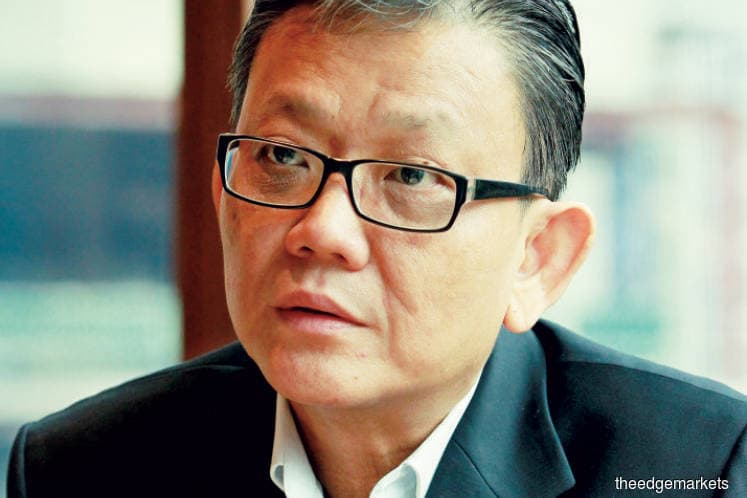
This article first appeared in The Edge Financial Daily on August 20, 2018
KUALA LUMPUR: In less than two weeks, Latitude Tree Holdings Bhd is going to publish its unaudited financial results for the fourth quarter ended June 30, 2018 (4QFY18), but finance director Yeoh Joe Son expects the final quarter’s earnings will not be able to salvage the group’s lacklustre performance for the fiscal year, which he has termed the group’s “worst”.
In the cumulative first nine months of FY18 (9MFY18), Latitude Tree’s net profit fell 60.5% year-on-year to RM25.49 million from RM64.61 million, though revenue declined only 4% to RM578.11 million from RM602.04 million. The earnings slump was due to higher raw material prices in 3QFY18, higher sales of lower-margin products, and more expensive labour costs in Vietnam due to an increase in minimum wages.
Nevertheless, during an interview with The Edge Financial Daily recently, Yeoh did not seem too bothered by the weaker showing the furniture maker is expected to post for FY18. “The worst is over. FY18 was our worst year; FY19 will definitely be better,” he said.
Yeoh said his assertion was based on three factors: more favourable exchange rates, moderated competitive pressure at the group’s Vietnamese operation, and normalised raw material prices.
Being a business wherein the bulk of revenue is derived from overseas, Yeoh said the weakening of the ringgit against the US dollar recently would likely lift the group’s profit.
In January this year, the ringgit was hovering around 3.87 against the greenback before dipping lower to 3.86 in March, according to Bloomberg data. It has since weakened further and breached the 4.00 level on June 18, slightly a month after the country’s 14th general election. Last Friday, the ringgit closed at 4.1055 against the greenback, down 0.07% in just a day.
At the same time, competition for orders in Vietnam, the group’s biggest revenue source in terms of geographical segment, has been moderating this year, said Yeoh.
“Some of our customers who went to Chinese manufacturers because of price are now coming back to us, due to various reasons. Over the long term, we expect more [to come back to us],” he said.
“Last year, we had to compete for orders with Chinese manufacturers in Vietnam. A lot of them moved their plants to Vietnam and expanded there. [They] undercut prices, just to get market shares,” he added.
Lastly, Yeoh said raw material prices have been stabilising since the Malaysian government imposed a ban on the export of rubberwood on July 1 last year. According to Latitude Tree’s FY17 annual report, about 60% of the group’s raw materials were rubberwood.
At its peak, Yeoh said rubberwood prices went as high as RM1,400 per tonne, but since the export ban, prices have normalised to around RM1,000 to RM1,100 per tonne.
In Parliament last week, Primary Industries Minister Teresa Kok told the Dewan Rakyat that the new government had no plans to lift the ban imposed on the export of rubberwood as the returns from this species of wood were six times higher after it is processed.
Moving forward, Yeoh said Latitude Tree intends to diversify its export portfolio, which is heavily reliant on the US market currently.
“In the longer term, instead of relying 100% on exports, we want 20% of our orders [to come from] the local market, 20% China, and 60% US — that is our strategy in Malaysia,” he said, adding that 10% of the group’s exports now are already China-bound shipments.
Yeoh said Latitude’s Malaysian plants can produce up to US$2.5 million (RM10.28 million) worth of furniture per month.
“In Malaysia, we are almost at full capacity. Because of labour constraint — getting labour is not easy here — so there is no point for us to expand. We just got to be selective on the customers we want,” he said.
Latitude Tree’s workforce in Malaysia is currently 1,400-strong, but Yeoh said the group could reduce its headcount by 20% in the future as a result of its ongoing efforts to incorporate automation in its production.
In Vietnam, where the group employs 5,300 people and has no labour shortage issue, Yeoh said Latitude Tree’s facilities there could produce up to US$15 million worth of furniture per month.
“For the Vietnam side, we are at more than 90% [utilisation] already. We are selling to China as well. We target to have 20% of our orders go to the China market, and the others to the US market,” he said, adding that the group is also eyeing the Indian and Middle Eastern markets.
Last Friday, Latitude Tree’s share price rose four sen or 1.11% to RM3.64, giving it a market capitalisation of RM352.88 million. But in the past 12 months, the counter has retreated 28.6%.